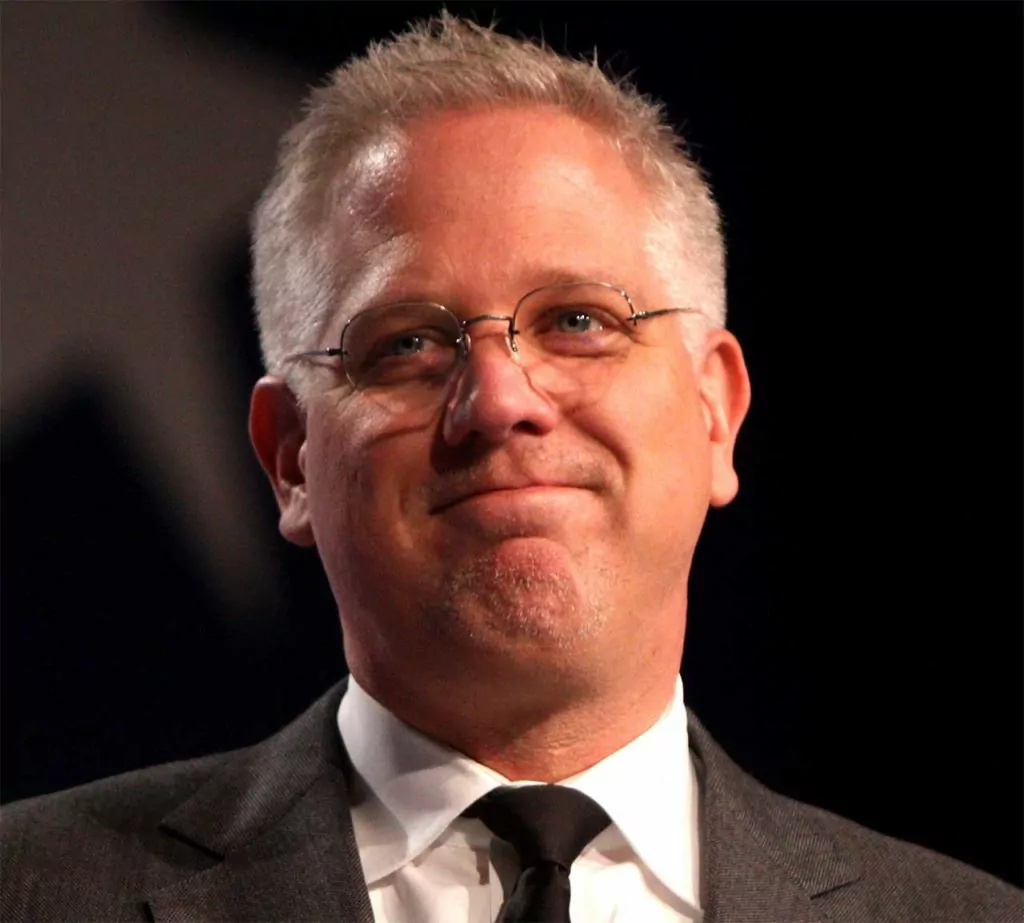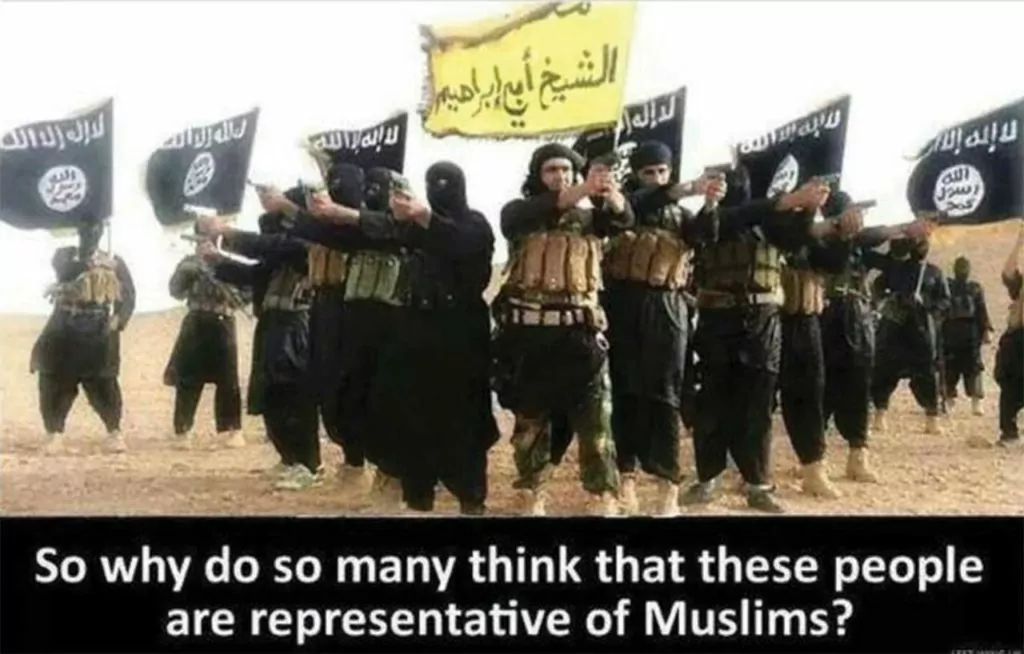Will the Islamic State disappear?
A look at ISIS, and its past, to get an understanding of its future
About four years ago the Islamic State of Iraq and Syria (ISIS) appeared to have come out of nowhere, creating havoc with its unspeakable brutality and dramatically transforming the political landscape of the Middle East. In short order it had millions under its control in a territory comparable to that of Great Britain, with footholds in Libya, northern Nigeria, and elsewhere as well.
However, it now looks as if the days of ISIS are numbered, with coalition forces having taken the city of Mosul from ISIS in July, and now having the momentum as they seek to destroy ISIS.
Gone for good?
But will the battle against what ISIS represents, and its dreams of a caliphate, truly be over if ISIS is wiped off the map of the Middle East? That does not appear likely.
ISIS has been compared to an aggressive cancer. You can take out a local tumor (ISIS in the Middle East), but the cancer then goes to the next phase. It metastasizes, that is, it spreads elsewhere where it is much more difficult to confront and control. We already see this happening in Southeast Asia where the Philippines are in turmoil as the government there grapples with ISIS forces.
But why is the ISIS drive for Islamic domination so difficult to defeat? In seeking an answer to that question, we need to understand what motivates ISIS. Since it claims to be Islamic, we must try to understand the notion and history of the caliphate and its theological origins.
We also need to hear what authoritative Islamic scholars are saying about ISIS and specifically their thoughts about how ISIS justifies everything it does from the Quran.
Finally we will ask what all of this suggests for the future.
Caliphate
Let’s being with a question: what is a caliphate?
It is an Islamic form of government headed by a caliph – that is, someone who is considered to be the religious and political successor of Mohammed, the founder of the Islamic faith. Such a caliphate would unite the entire Muslim world and be ruled with a strict Islamic code.
There was a caliphate in the past. By the time of Mohammed’s death in 632, Islam dominated the entire Arabian Peninsula and by 661 AD had spread into northern Africa and what is today the entire Middle East including part of Turkey and Afghanistan. By 750 AD this caliphate had expanded from India to Spain and Portugal.
The last major caliphate was the Ottoman Empire which embraced Turkey, the Middle East, northern Africa, the Balkans and beyond. This empire lasted from 1517-1924. Among the titles of the head of the Ottoman Empire was that of caliph. It was not always taken seriously but in the 1800’s the importance of the caliph and the caliphate was revived and Islam was promoted as a unifying factor in the empire. It is good to remember that it was the Ottoman Empire that in 1683 seemed ready to overrun Christian Europe but it was stopped at Vienna. Christianity’s conflict with Islam is very old!
Islamic caliphates and empires have had years of dominance and glory. It is no wonder that idealistic Muslims who take the Quran and its teachings seriously want to create a new caliphate. The 21st century has given these Muslims an opportunity.
Is ISIS Islamic?
To understand ISIS and its aggression, we need to know how ISIS relates to the Islamic faith.
The areas that ISIS controls are subject to Sharia law. Christians cannot worship in public and build or repair churches. They cannot display a cross, ring church bells, or pray within earshot of Muslims.
ISIS has all the trappings of a state including their own currency and an army of over 100,000. Their flag is the Black Standard or Black Banner which Islamic tradition says that Mohammed used. The white banner at the top of the flag reads: “There is no god but Allah. Mohammed is the messenger of Allah.” This declaration of the Islamic faith is known as the shahada. Underneath is a white circle with the words “Mohammed is the messenger of God” which is meant to resemble the prophet’s seal. A version of this flag is also used by al-Qaeda and other terrorist organizations.
In spite of what has just been noted, Western leaders have been saying that ISIS has nothing to do with Islam. Islam is a religion of peace. But is this politically correct approach true? ISIS says it is Islamic, but it has been very much in war mode. What are we to make of this? What is the relationship of ISIS to Islam?
The theological origin of ISIS
To answer those questions we need to take a look back at some recent Saudi Arabian history.
After oil was discovered in Saudi Arabia in 1938, the Saud family has spent an estimated $100 billion to spread the cause of conservative fundamentalist Islam called Wahhabi Islam. This is the official religion of Saudi Arabia which considers itself the guardian of Islam since the two most holy places associated with Mohammed are found there: Mecca and Medina.
Wahhabi Islam stems from an eighteenth-century Muslim, Muhammad ibn Abd al-Wahhab, who wanted to restore Islam to its original purity by rejecting all innovations and basing his religious observance strictly on what the Quran and Mohammed taught. Anyone who disagreed was declared to be an unbeliever and could lawfully be killed as a heretic and apostate. Wahhab died in 1792 but the ideology lived on.
Eventually a Wahhabi sheikh, ibn Saud, captured Riyadh and established the Kingdom of Saudi Arabia in 1932. The brutality of ISIS today has been demonstrated in the past by the Wahhabis. For example, in 1803 the Wahhabis entered the city of Ta’if, close to Mecca and massacred all the Muslim men, and enslaved all the women and children.1
Saudi wealth has made Wahhabism go worldwide and mainstream in the Islamic world. Al-Qaeda is simply an especially pernicious outgrowth of Wahhabism, and ISIS in turn is a virulent outgrowth of al-Qaeda.2 It is interesting to note that “in July 2013, the European Parliament identified Wahhabism as the main source of global terrorism.”3
So how does Saudi Arabia respond to that? The Grand Mufti of Saudi Arabia, the highest official of religious law in a Muslim country, condemned ISIS in the strongest terms and insisted that, “the ideas of extremism, radicalism and terrorism do not belong to Islam in any way.” This could of course purely be an exercise in public relations and may be an exercise in using the Muslim right to lie (taqiya) in order to advance the cause of Islam.4
There may however be an element of truth in what the Grand Mufti said. Prior to the rise of Wahhabism, Muslims were reluctant to declare a fellow Muslim an unbeliever (kafir), a practice called takfir. They would quote the Quran “There must be no coercion in matters of faith” (2:256). However, Wahhabism has now become mainstream fundamentalist Islam, especially through Saudi Arabia’s worldwide efforts to export this brand of the faith. The Sauds have done so very effectively, not only in poor Muslim countries, but also in wealthy western nations, especially by building mosques and providing Wahhbi preachers. And so an entire generation of Muslims spread over the whole world is growing up with this indoctrination. Not surprisingly, Saudi Arabia is in a difficult position over against ISIS. Particularly when you consider that it has encouraged its young men to join recruits from the Arab world to fight in the Islamic Jihad against Russia in Afghanistan in the 1980’s (one of whom was Osama Bin Laden). Not surprisingly, Saudi young men have also flocked to ISIS.5
Why the Saudis oppose ISIS
Many have assumed or claimed that Saudi Arabia, which is of the Sunni branch of Islam, was a patron of ISIS, using ISIS as a pawn to check the rising power of Iran, which is of the Shiite branch of Islam.
While some experts suggest that there’s truth to this claim, they also say that it’s not quite that simple. Saudi Arabia supports a Wahhabi Islam and has sought to export it, but it did so not just for religious reasons, but especially political. As Wahhabi influence spread, the hope was that those who accepted it would also want to be ruled by Saudi Arabia, the protector of Islam, and so the influence and power of the Saudi nation would expand.
Because of its political, pragmatic approach, Saudi Arabia has had to deal with rebellions and uprisings in its own country from those who saw in the politics a less than faithful adherence to Islam. Al-Qaeda also launched attacks in Saudi Arabia in 2003.
Nevertheless, Saudi Arabia has continued its pragmatic course seeking to consolidate its own power. This means that it must take exception to the ISIS declaration of a caliphate. After all, Saudi Arabia imagines itself to be the center of any future caliphate – it doesn’t want competition for that title from ISIS. It has therefore quietly tried to discourage Saudi fighters from going to ISIS, but it promotes the Wahhabi system that supports them.
So there is a problem here for Saudi Arabia. The declaration of a caliphate has enormous appeal to faithful Muslims who want to answer its call. According to Islamic theology, the caliphate
“is the Islamic nation, embodying the supranational unity of the Muslim community worldwide under a single leader, the caliph, or ‘successor’ of Mohammed as the spiritual, political, and military leader of the Muslims.”6
So when Abu Bakr al-Baghdadi, self-proclaimed caliph of ISIS, speaks as the caliph, to any who recognize him under that title, he is speaking as a successor of Mohammed, yes, as if he were Mohammed himself. This is powerful stuff, for the Quran repeatedly exhorts Muslims to obey not only Allah, but Mohammed as well.7 So, reaching across Arab borders, including tribes in northern Saudi Arabia, ISIS called for the faithful to subject themselves to ISIS.
And so, although theologically similar to ISIS, Saudi Arabia, in order to protect its pretensions to the caliphate and perhaps above all the unity of its country quickly formed an international alliance against ISIS and declared it a terrorist threat. In February, 2016, Saudi Arabia even decided to send troops against ISIS. Actually Saudi Arabia does not use the term ISIS, for they deny it is the Islamic caliphate. Instead they call ISIS, Daesh which is an acronym for the Arabic words: “The Islamic State of Iraq and the Levant.” In any case, with so much at stake, and with Western air power not defeating ISIS, Saudi Arabia had little choice but to say that they would join in the fight against ISIS by promising to send ground troops.
However, it is not clear whether they have actually done so.
With this background into the caliphate and the theological origins of ISIS, we are now ready to address the question of how ISIS relates theologically to Islam. Is ISIS really Islamic or is it just a terrorist organization?
ISIS and Muslim scholarship
There are many who say that ISIS is not Islamic. Not just Western leaders who never tire of calling Islam a religion of peace, but also Islamic scholars have distanced themselves from ISIS.
On one occasion more than 120 Muslim scholars from around the world, including the grand mufti of Egypt and the mufti of Jerusalem and All Palestine, condemned ISIS in an open letter to its Caliph that was released in Washington in 2014. It made 24 major points such as that it is forbidden to kill the innocent, that jihad is a defensive war, that it is forbidden to harm or mistreat – in any way – Christians or any “People of the Scripture,” that it is forbidden to torture people, etc. All the practices of ISIS were highlighted and denied as being Islamic.
However, one can question both the accuracy of the fanfare accompanying this letter as well as the sincerity of those who signed it. Legitimate questions about the true extent of the condemnation of ISIS can be raised, as has been documented.8
A more recent conference that can be mentioned in this context is one that took place in Marrakesh, Morocco in January 2016. It included 300 prominent Islamic clerics and experts from Morocco to Indonesia. It called for more tolerance and quoted the Quran to back up its statements. When you read the Declaration they produced, you start to wonder, yes, is Islam not a religion of peace? There are definitely peaceful passages in the Quran.
However, one needs to realize that Islam knows the concept of “abrogation.” Simply put that means any later revelation that contradicts an earlier one cancels out that earlier one. As Mark Durie put it in his excellent study, The Third Choice (2010) on page 36:9
"The Islamic doctrine of jihad is a noted example of the application of abrogation. Verses calling for warfare with unbelievers derive from Muhammad’s militant Medinan period, while more peaceful verses derived from the earlier Meccan period, when the Muslims were weak and few in numbers. In accordance with the doctrine of abrogation, Medinan verses take priority over Meccan ones. For example Q9:5 and Q9:29, both in the last chapter of the Quran to be revealed, call for virtually unlimited war against unbelievers. These have been regarded by some Muslim scholars as having abrogated more than a hundred earlier verses which commanded Muslims to deal peacefully with non-believers. Consequently, for most Muslim scholars down the centuries the 'Medinan face' of Islam overshadows the 'Meccan face.'"
Muslims do not readily talk about this notion of abrogation. It is to the advantage of Islam and its spread in the West to be known as a religion of peace by quoting selective passages from the Quran which are no longer authoritative because they have been abrogated by passages mandating a hostile attitude to non-Muslims.
The Declaration of Marrakesh was therefore not honest in representing Islamic thinking. It may have been well-intentioned but they were fooling themselves if they thought this would make any difference. The Declaration has been virtually ignored in the Muslim world.
Al-Azhar University
The Al-Azhar Mosque and University in Cairo.
Furthermore, it is quite telling and decisive that Sunni Islam’s most prestigious center of learning, Al-Azhar University in Cairo, founded about 970 AD, refuses to condemn ISIS. This university expressed outrage at the burning of a Muslim Jordanian pilot by ISIS in early 2015, presumably because he was a Muslim, and even called for the crucifixion of the ISIS terrorists responsible, but it steadfastly refuses to say that ISIS is not Islamic.
Dr. Ahmed al-Tayeb, the Sheikh and Grand Imam of Al Azhar, and thus Egypt’s top authority on Islam, said that he could not condemn ISIS. He would only do that if a Muslim rejected the fundamental principles of Islam such as the shahada – that there is no god but Allah and Mohammed is his messenger – and Islamic Scriptures. As justification for ISIS tactics, Tayeb quoted the Quran 5:33:
“The only reward of those who make war upon Allah…will be that they will be killed or crucified, or have their hands and feet on alternate sides cut off, or will be expelled out of the land.”
In light of all this, it is not surprising that in a real sense ISIS is a by-product of Al Azhar’s programs. This is openly admitted. Sheikh Muhammad Abdullah Nasr, a scholar of Islamic law and a graduate of Al-Azhar University, when asked why the university does not condemn ISIS as un-Islamic, replied:
“It can’t . The Islamic State is a by-product of Al-Azhar’s programs. So can Al-Azhar denounce itself as un-Islamic? Al-Azhar says there must be a caliphate and that it is an obligation for the Muslim world . Al Azhar teaches the law of apostasy and killing the apostate. Al-Azhar is hostile towards religious minorities, and teaches things like not building churches, etc. Al-Azhar upholds the institution of jizya . Al-Azhar teaches stoning people. So can Al-Azhar denounce itself as un-Islamic?”
Other authoritative voices support these sentiments. For example, “Egyptian political writer Dr. Khalid al-Montaser revealed that Al-Azhar was encouraging enmity for non-Muslims, specifically Coptic Christians, and even inciting for their murder.”
One needs to remember that Al-Azhar is a most renowned and authoritative institution which has a huge influence in the Muslim world. According to Wikipedia it oversees a national network of schools in Egypt with about two million students. In 1996 over 4,000 teaching institutions in Egypt were affiliated with this university.
So why did so many scholars and many others continue to say that ISIS is not Islamic? Why do they continue to deceive the Western world while Muslims in the Middle East say ISIS is Islamic and indeed ISIS itself says it is Islamic and thus calls itself the Islamic State?
It is possible that such scholars are following the Muslim doctrine of taqiyya, a teaching held by all branches of Islam. According to this doctrine a Muslim can lie if that is advantageous to him or her or if lying promotes the cause of Islam.10 It makes sense for Muslims to keep propagating the idea that Islam is a religion of peace in order for it to find a more ready acceptance in the West. The integrity of these scholars must be questioned. It is better to listen to the most authoritative voice on Islam, the prestigious Al-Azhar University in Cairo. It rightly considers the Islamic State to be truly Islamic. A look at the evidence from the Quran and its application in ISIS makes that clear.
The Islamic State and the Quran
ISIS accepts the Quran as authoritative and thus understands it at face value according to the plain meaning of the text. This simple acceptance of the most holy text of Islam finds resonance and acceptance among the Muslim masses.11
Islamic with its beheadings
ISIS has repeatedly cut off the heads of Westerners and others they consider their enemies. Not only did they behead, but they filmed and distributed the gruesome scenes on social media.
Why?
It is all justified from the Quran. “When you meet the unbelievers, strike the necks” or “Smite at their necks” (47:4). This is in the context of battle for Allah. Furthermore, beheading was something Mohammed himself sanctioned. One example Andrew Bostom shares from 627 AD:
“According to Muhammad’s sacralized biography by Ibn Ishaq, Muhammad himself sanctioned the massacre of the Qurayza, a vanquished Jewish tribe….Thus some 600 to 900 men from the Qurayza were on Muhammad’s order to the Market of Medina. Trenches were dug and the men were beheaded, and their decapitated corpses buried in the trenches while Muhammad watched in attendance.”
ISIS is following the example of Mohammed. The filming of beheadings also fulfills the requirements of the Quran which states “strike terror into the hearts of the enemies of Allah” (8:6).
Islamic as regards sex slaves
Another atrocity committed by ISIS is their capturing non-Muslim women and using them as sex slaves. The Quran allows this practice. It says that in addition to having two to four wives, Muslim men may enjoy the “captives of the right hand.” “It is a decree of Allah for you” (4:3; 4:24). These women were taken as spoils of war (33:50) and were to be used specifically for sexual purposes. The Quran says that virtuous Muslims “abstain from sex, except with those joined to them in the marriage bond, or (the captives) whom their right hands possess. For in their case they are free from blame” (23:5-6). It is no problem if the women they capture are already married. Islamic law directs that “when a child or a woman is taken captive, they become slaves by the fact of capture, and the woman’s previous marriage is immediately annulled.”
ISIS does nothing new in capturing women to serve their sexual appetite. They say that they are simply reviving an institution justified under Sharia, that is, Islamic law. Indeed, the practice of female sex slaves is openly defended among Muslim scholars in the Middle East as being fully in accord with the Quran. If a single man cannot do without a woman, religious experts advise that he should purchase a sex slave. Then he will not sin. ISIS has sex slave markets where women from defeated infidels can be brought to be sold.
This mind-set explains why Boko Haram, the Nigerian terrorist group allied with ISIS, captured over 200 non-Muslim girls and pressed them into sex slavery. The going price of a slave was about $170. It is also not by chance that in many areas of the West where large numbers of young Muslim men now live, sex trafficking and rape have become major problems. Non-Muslim girls are considered fair game for those who wish to capture for Allah.
Islamic in its punishments
The horrific punishments that ISIS inflicts on those it captures and those caught “sinning” can also be defended as justified by the Quran which states:
“The only reward of those who make war upon Allah and His messenger and strive after corruption in the land will be that they will be killed or crucified, or have their hands and feet on alternate sides cut off, or will be expelled out of the land. Such will be their degradation in the world, and in the Hereafter theirs will be an awful doom” (5:33-34).
Accordingly in ISIS, blasphemy against Allah or Mohammed is punished by death. Murder accompanied with stealing means death and the crucifixion of the dead body. Stealing is punished by the amputation of the right hand and the left leg. Elsewhere, stealing is punished by amputation of the hands.
“As for the thief, both male and female, cut off their hands. It is the reward of their own deeds, an exemplary punishment from Allah” (5:38).
Adulterers are to be stoned to death, fornicators are to be given a hundred lashes and exile. Stoning for adultery is based on the hadith – the sayings of Mohammed. The stoning of an adulterer can be done on the basis of witness, or pregnancy, or confession. Homosexual behavior is to be punished by death according to another hadith.
Other crimes deserving punishment within ISIS include drinking alcohol. According to a hadith, someone caught drinking such forbidden liquid is given 80 lashes. Slanderers also get 80 lashes. The Quran says:
“And those who accuse honorable women but bring not four witnesses, scourge them (with) eighty stripes and never (afterward) accept their testimony - They indeed are evil-doers.”
Those caught spying for unbelievers are to be put to death according to the Quran. And apostates too:
“They wish you would disbelieve as they disbelieved so you would be alike. So do not take from among them allies until they emigrate for the cause of Allah. but if they turn away, then seize them and kill them wherever you find them and take not from among them any ally or helper” (4:89).
As mentioned earlier, ISIS burned a Jordanian alive while locked up in a cage on February 3, 2015. Some Muslims have condemned this as un-Islamic and even forbidden. There is indeed an Islamic tradition, or hadith, which forbids it, saying that only God tortures with fire. However, as happens so often in Islam, there is a contradictory hadith that depicts Mohammed as saying that “those who don’t answer the call to prayer should be set on fire, along with their houses.” The burning of the pilot can even be justified from the Quran. It says: “and if you do punish , then punish with the equivalent of that with which you were harmed” (16:126). As ISIS explained in their on-line English language propaganda magazine:
“In burning the crusader pilot alive and burying him under a pile of debris, the Islamic State carried out a just form of retaliation for his involvement in the crusader bombing campaign which continues to result in the killing of countless Muslims who, as a result of these air strikes, are burned alive and buried under mountains of debris.”
This statement was followed by proof from the Quran and Islamic tradition.
More generally, the Quran tells Muslims to kill all those who turn away from Islam (4:89). This would include all Muslims fighting with the Western powers against ISIS.
There is no question that ISIS is brutal. However, the brutality of ISIS punishments is a true reflection of Mohammed’s own record of cruelty and many of the crimes punished with death in ISIS are also punished with death in Saudi Arabia. These include the death penalty for adultery, armed robbery, sorcery, heresy, spying, and for anyone who does not desist from his crime, and from whose evil civil society can be saved only by their death.
Islamic in its tax on Christians
In accordance with the Quran, ISIS also demands that Christians pay a special tax. It is the jizya tax. The Quran states that “the People of the Book” (which includes Jews and Christians) “pay the jizya with willing submission” until they “feel themselves subdued” (9:29).
This tax is to be imposed on virtually all non-Muslim mature males who live in a Muslim majority country. In the Wikipedia entry on jizya it is described as:
“a fee for protection provided by the Muslim ruler to non-Muslims, for the permission to practice a non-Muslim faith with some communal autonomy in a Muslim state, and as material proof of the non-Muslims’ submission to the Muslim state and its laws. Jizya has also been rationalized by some as a symbol of the humiliation of the non-Muslims in a Muslim state for not converting to Islam.”
One needs to remember that this special tax within its historical context was basically one of three choices that non-Muslims can make. The other two choices were to convert to Islam or to be killed.
There is one further way in which the IS is truly Islamic and firmly built on Islamic tradition – its view of the end times.
Islamic regarding the End Times
Unlike other terrorist organizations like Al-Qaeda, ISIS believes that the final day is near. References to the end times fill the propaganda of ISIS. As author William McCants shares in his book The ISIS Apocalypse: The History, Strategy, and Doomsday Vision of the Islamic State: “It’s a big selling point with foreign fighters who want to travel to the lands where the final battles of the apocalypse will take place.”
The civil wars raging in the Middle East give credibility to the prophecies. As McCants notes, “The Islamic State has stoked the apocalyptic fire. Its fighters died to capture the militarily unimportant town of Dabiq, Syria, because it’s mentioned in the prophecies.”12
The approaching final Day of Judgment means that the Middle East and Europe need to be and will be conquered for ISIS’s vision of Islam according to Islamic prophecies, found in the hadith, and not the Quran. Such thinking fuels enormous energy and enthusiasm, especially among the young. They are convinced that the day of victory is in sight. They also think that the Left in Europe will help them achieve their goals. This type of thinking drives young Jihadists from the comforts of the West to fight for ISIS and to carry out terrorist attacks in the West.
Is the Islamic State a caliphate?
Connected with the question whether ISIS is truly Islamic is the issue of the caliphate. Once a caliphate is proclaimed, many believe it is the duty of Muslims to flock to it and join it. As Robert Spencer writes:
“The caliphate is an obligation, that is, Muslims should strive to establish a single multinational, multiethnic empire, to which alone they owe political loyalty. In other words they owe no loyalty to the nations in which they currently reside.”13
Young jihadists have answered the call and thousands from the Western world have flocked to ISIS. In the Islamic world, jihadists have come from the Sinai, Libya, Yemen, Algeria, Saudi Arabia, Nigeria and Somalia.
Although ISIS is surely Islamic, not much in the way of official endorsement has been forthcoming from Muslim countries or scholars. This lack of enthusiasm for ISIS is mainly for political reasons.
The Muslim Brotherhood is a large international Muslim organization dedicated to the promotion and dominance of Islam in the world, with the use of terror as necessary. Yet, it is not recognizing ISIS simply because it also wants a caliphate, but one over which it has control.14 The Muslim Brotherhood’s ambitions came clearly to the fore when it gained power in Egypt. It immediately pushed a rapid Islamization of Egypt which created serious public opposition. In the end the Muslim Brotherhood was thwarted by the army which rightly saw democracy disappearing under the Brotherhood’s agenda and so removed Mohamed Morsi from the presidency. Abdel Fattah el-Sisi, the head of Egypt’s armed forces became president.
Saudi Arabia formed a 34 state coalition against the Islamic State in December 2015, and ISIS in turn declared war on Saudi Arabia. There is some irony in all of this since, as we have seen, Saudi Arabia is to a large extent responsible for the export of radical Islamic ideology. Since Saudi Arabia considers itself the leader of the Muslim world, it does not like to be upstaged by ISIS. Furthermore, since Saudi Arabia and ISIS have competing claims to leadership of the Muslim world, Saudi Arabia is rightly concerned about ISIS terrorist activity in its own country. What ISIS would love to do is to take over the two most holy sites of Islam, both of which are in Saudi Arabia, namely, Mecca and Medina.15
When one realizes that the refusal to recognize the ISIS caliphate is mainly for political reasons and not because it is unfaithful to the Quran, the question arises whether a truly moderate Islam is possible.
Is a moderate Islam Possible?
There is a good deal of controversy about this point.
On the one hand you can defend that a moderate Islam is possible. Historically, there has been a form of Islamic government that is not as cruel and barbaric as ISIS. One can think of medieval times when Jews fled persecution in Christian Europe by going to the Islamic Ottoman Empire. Turkey became home to Jews expelled from Hungary in 1376, from France in 1394 and from Sicily in the early 15th century.
However, moderate Islam is difficult to find today. It is true that Islam has to sort out their problems with ISIS. No one outside Islam can do that. But, the question can rightly be asked, where is moderate Islam over against all the atrocities of ISIS? The silence from the Islamic community is deafening. Where is moderate Islam 14 years after 9/11? There are a handful of Islamic scholars that speak up and protest, but as Robert Spencer comments:
“what they offer is a non-traditional Islam with no foundation in Islamic theology or history, and no significant backing among Muslims. There is no large-scale movement among moderate Muslims to combat the Islamic State, Boko Harmam, and other jihadists…. there is no moderate Muslim organization with a large membership or influence among Muslims.”
When one looks at Islamic majority countries, the outlook is not very good. Turkey, although a member of NATO, is being Islamized. Its president, Erdoğan is succeeding in turning Turkey away from its secular past into an Islamic state. Christians are seen as second-class citizens and Christianity is on the verge of extinction. The Armenian genocide and the continued marginalization of Christians has left them with a mere 0.2% of the population. There are only 34 church buildings and no new church buildings are allowed.16
Nowhere in Muslim nations do Christians have the same rights and freedoms as Muslims have in the West. Some exceptions may exist in certain local or provincial situations where there is a larger Christian population, as in Indonesia. But these are the exceptions indeed. Wherever Islam has the majority, the world over, it is intolerant to Christianity.
So, is a moderate Islam possible? Not really if they are true to their teachings.
This reality should send a warning message to the West. One could say, “Well the Muslims I know are not like that. They are moderate and peaceful.”
Two comments on this.
First, most Muslims are nominal Muslims and most have probably never read the Quran which is difficult to understand. It does not interpret itself as the Bible does. It is also written in ancient Arabic, the preferred language for reading it. Many Muslims have a copy of the Quran in translation but few appear to have read it.
Second, Muslims are now a minority, but once they have a high enough percentage in the population, trouble starts and demands for Sharia law are sounded. Basic to their ideology is the need to convert the world to Islam. The current friendly neighborhood Muslim may not be interested, but when the time comes the mosque may demand that he or she participate to increase the influence of Islam by whatever means the mosque deems necessary. That process is already starting in many parts of Europe.
The Netherlands
There are telltale signs that Islamic intolerance is now extending into the Western world. In the Netherlands, for example, open protests and marches to demand Islamic domination in Dutch society take place. The most obvious example of Islamic intolerance is the existence of so-called “no-go” zones where only Muslims are welcome. They are more and more prevalent in Europe. In such zones Sharia or Islamic law trumps the law of the land. Here are some facts about Islamic no-go zones in Europe.
France
The French government has acknowledged the existence of many no-go zones in their country. As Soeren Kern has reported:
"In October 2011, a 2,200-page report, Banlieue de la République' (Suburbs of the Republic) found that Seine-Saint-Denis and other Parisian suburbs are becoming 'separate Islamic societies cut off from the French state and where Islamic Sharia law is rapidly displacing French civil law. The report also showed how the problem is being exacerbated by radical Muslim preachers who are promoting the social marginalization of Muslim immigrants in order to create a parallel Muslim society in France that is ruled by Sharia law."
One needs to realize that this is over six years ago. The situation is much worse today.
Here is a typical comment from Fabrice Balanche, a well-known French Islam scholar. He said: “You have territories in France . . . such as northern Marseille, where police will not step foot, where the authority of the state is completely absent, where mini Islamic states have been formed.” This is consistent with the ideology of ISIS and Islam.
Modified Gareth Davies' photo, licensed under CC license BY 2.0.
Great Britain
Similar things are being said in Britain. The Gatestone Institute’s Soeren Kern writes:
“A study by Oxford Professor David Coleman showed that if current immigration levels continue, white Britons will be a minority in little more than 50 years – within the lifespan of most young adults alive today. Coleman warned that this will be accompanied by a total change in national identity – cultural, political, economic and religious. He wrote: ‘The ethnic transformation implicit in current trends would be a major, unlooked-for, and irreversible change in British society, unprecedented for at least a millennium.’”
There are already over a 100 Islamic enclaves in Britain. Here Sharia law would be the norm. Again, this is consistent with Islamic State ideals and the ideals of Islam generally. Islam needs to take over the world.
However, political correctness means you must not talk about this. As a matter of fact when Donald Trump back in 2015 spoke of no-go zones in Britain and said: “We have places in London and other places that are so radicalized that police are afraid for their own lives” a government sponsored petition was launched to ban him from entry to the UK. Police officers, however, retaliated with backing up Trump’s claims completely and letting them be published.
Terrorist attacks in Britain this year underline Britain’s vulnerability.
North America
More examples from Europe could be given, but let’s move to North America. Although the mainstream politically correct media do not report or deny any danger of no-go zones in America, there are three urban areas that almost qualify as no-go zones: Dearborn, Michigan (Detroit), Paterson, New Jersey, and the Muslim quarter of Jersey City, New Jersey (just outside New York across the Hudson River).
These are communities that do not want to integrate or assimilate. Robert Spencer, an expert on Islam told a news agency that there are no no-go zones in America right now,
“but they’re coming as the Muslim population grows.... We already see areas such as Dearborn, Michigan: It isn’t a no-go zone – police don’t fear to enter there and non-Muslims aren’t menaced for non-adherence to Sharia norms – but police did the bidding of the Muslim community a couple of years ago and arrested some Christian missionaries solely for the crime of preaching to Muslims. A Sharia crime, not a crime according to any U.S. law.”
Indeed, these evangelical Christians were attacked with rocks and bottles by a Muslim crowd for talking about their faith on public property during an annual Arab festival. In another report we read:
“Hamtramck, Michigan now has a city council that is majority Muslim. The call to Muslim prayer is broadcast five times a day over the entire city, with the first blast launching at 6 am every day whether Christian residents are offended by it or not. Am I saying Hamtramck is a no-go zone? Of course not. Am I saying that if something isn't done, it will become one? If there is anything to learn from Europe, the answer to that question is an unequivocal yes.”
Obviously all of this has a message for Canada as well. We need to be far more realistic about our multiculturalism and immigration policies. Those entering our country from Muslim countries should be asked whether they wish to integrate into Canadian society. If not, they should normally not be admitted. Canada as the host country has the right to maintain its historic Judeo-Christian identity.17
Conclusion
ISIS has a close relationship to Islam. It has justified all its actions from the Quran and Islamic tradition. The top Islamic university in the world does not deny the Islamic character of ISIS or its right to exist. Those Muslims who do challenge its right to exist, do so for selfish or political reasons. ISIS is Islamic, whether our politically correct society wants to acknowledge it or not.
Is there such a thing as a moderate Islam that can be more amenable to Western ways so that it can integrate into Western society? The bottom line seems to be that it is very difficult if not impossible for Muslims to be moderate if they are serious about their faith. The Islamic faith demands to be dominant and rule. It is part of their theology. The religious and the political go together. They cannot be separated. ISIS has illustrated that and the spreading of no-go zones in Europe and ISIS sponsored terrorist attacks confirm it. It is foolish to ignore this reality. Those modern Muslims who do not frequent the mosque and are Muslim in name only are not recognized as Muslim by the faithful and so they have very little or no influence.
Even if ISIS were to be completely defeated in the Middle East it would probably continue to have a global impact and continue to plant terrorist cells in many nations as long as the funding is there. The jihadists are willing to fight and die for the cause. Western nations need to be vigilant. They must also ensure that those immigrating from Islamic majority countries are interested in integrating into Western society.
It is of course also important to work with Muslim organizations that do wish to honor key Western values. One example of such an entity is the Muslim Canadian Congress which was established by Tarek Fatah, who writes critical commentary on Islamic matters for the Toronto Sun and opposes Sharia law. A problem is that those Muslims who are sympathetic to the ideals of ISIS will not recognize another Muslim or Muslim organization that does not follow their understanding of the dictates of the Quran.
A huge obstacle to openly discussing the issues that radical Islam presents is political correctness. The challenges need to be discussed openly for the Islamic dream of a caliphate that ISIS embodied will not disappear. This dream has significant influence among Canada’s Muslims, especially the idealistic and fervent young.
The only answer
At the end of the day, the only real solution for Islam is the gospel. That is why it is important to support mission efforts to Islamic peoples at home and abroad. When an open-minded Muslim reads Scripture, the Spirit works and the Muslim is, so to speak, blown away. God is love! That is gospel, exciting good news, for those who only know of a distant and stern Allah. This concept of a loving God and Father is so important in reaching out to Muslims. When I was in northern (Muslim) Sudan some years ago, I visited the Muhaba Centre for boys aged 11-13. These are orphaned street boys who are given shelter, food and a Christian education. Within the Muslim context, the sign above the door made a deep impression on me: “God is Love.” There is forgiveness of sins! There is assurance of salvation for all who believe! All these concepts are foreign to a Muslim. When they understand them, they are overwhelmed. An example of that is Nabeel Qureshi who earnestly sought to be faithful to Islam and in the process was led to faith in Christ. He wrote a book about it, Seeking Allah, Finding Jesus (2014). The Lord gathers his church also from Muslim nations. Some of that activity has been described by David Garrison in his study, A Wind in the House of Islam (2014). The Middle East Reformed Fellowship also receives much positive feedback to the gospel in its broadcasts.
While the dream of radical Islam will probably live on beyond ISIS, Christians have a future that is no mere dream, but a guaranteed reality. We have a Savior who rules in glory. He is sovereign. God the Father has given to him all authority in heaven and on earth (Matt 28:18). He gathers together his people, not with terrorist tactics, but with the Word of God, the sword of the Spirit (Eph. 6:17). And when the complete number of the elect has been gathered, he will return! As Christians we can rest assured that at the end of the day, Christ will triumph over all forces arrayed against him, including Islam. The victory will be his!
Endnotes
1. For the above paragraph, see Robert Spencer, The Complete Infidel’s Guide to ISIS (Washington, DC: Regnery Publishing, 2015), 24–25; also see Karen Armstrong, “Wahhabism to ISIS: How Saudi Arabia Exported the Main Source of Global Terrorism,” The New Statesman, 27 November 2014.
2. Spencer, The Complete Guide, 26.
3. Armstrong, “Wahhabism to ISIS”.
4. See Armstrong, “Wahhabism to ISIS”, and on lying, Cornelis Van Dam, “Islam and Deception,” Clarion65 (2016): 10.
5. Armstrong, “Wahhabism to ISIS”.
6. Spencer, The Complete Guide, 167.
7. See all the references in Spencer, The Complete Guide, 167.
8. By Spencer, The Complete Guide, 244–50.
9. Also see William McCants, The ISIS Apocalypse: The History, Strategy, and Doomsday Vision of the Islamic State (New York, NY: St. Martin’s Press, 2015), 78.
10. Van Dam, “Islam and Deception.”
11. For most of what follows in this section, see Spencer, The Complete Guide, 226–50. It is noteworthy that the “caliph” of ISIS, Al-Baghdadi, has a Ph.D. in Quranic studies. McCants, The ISIS Apocalypse, 74–76, 150.
12. McCants, The ISIS Apocalypse, 147.
13. Spencer, The Complete Guide, 249.
14. Spencer, The Complete Guide, 249–50.
15. See, e.g., Al-Rasheed, “Saudi Arabia Forced to Rethink”; Prasanta Kumar Pradhan, “The Kingdom and the Caliphate: Saudi Arabia’s Approach Towards the Islamic State,” www.Idsa.in, 2 February 2015.
16. See Cornelis Van Dam, “Turkish Christianity Imperilled,” Clarion64 (2015): 336 and Can Erimtan, “The End of ‘Secular Turkey’ or Ottomans Re-Emergent?” www.rt.com, 13 January 2015.
17. See, e.g., Cornelis Van Dam, The Multicultural Challenge: A Christian View (Ottawa: ARPA Canada, 2012), and Cornelis Van Dam, “Interreligious Relations and the Challenge of Multiculturalism: Some Biblical Principles,” in Interreligious Relations: Biblical Perspectives, ed. Hallvard Hagelia and Markus Zehnder (London, UK: Bloomsbury, 2017), 31–50.
Dr. Van Dam is the author of “God and Government,” “The Elder,” and “The Deacon,” and is Emeritus Professor of Old Testament at the Canadian Reformed Theological Seminary...















